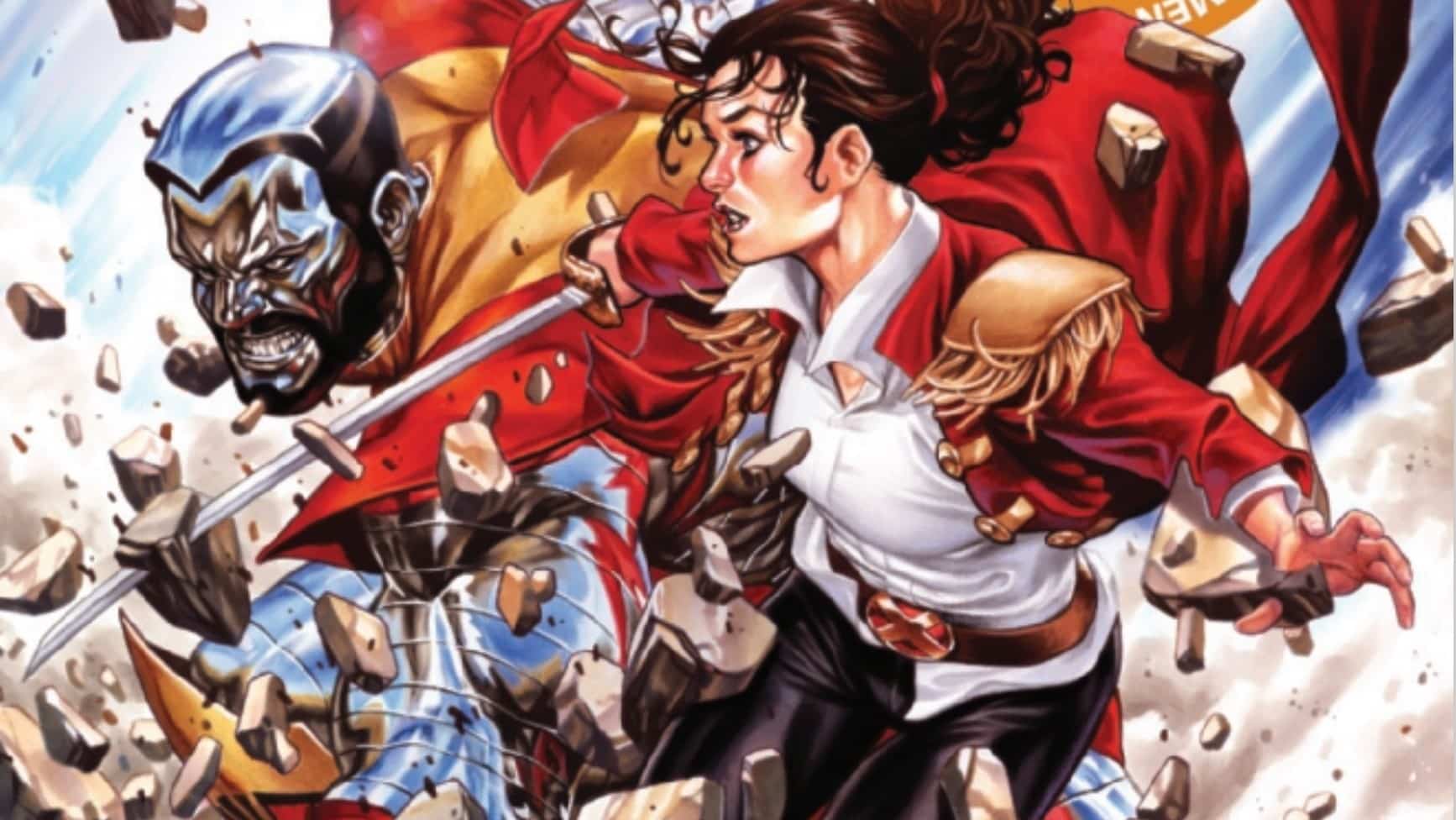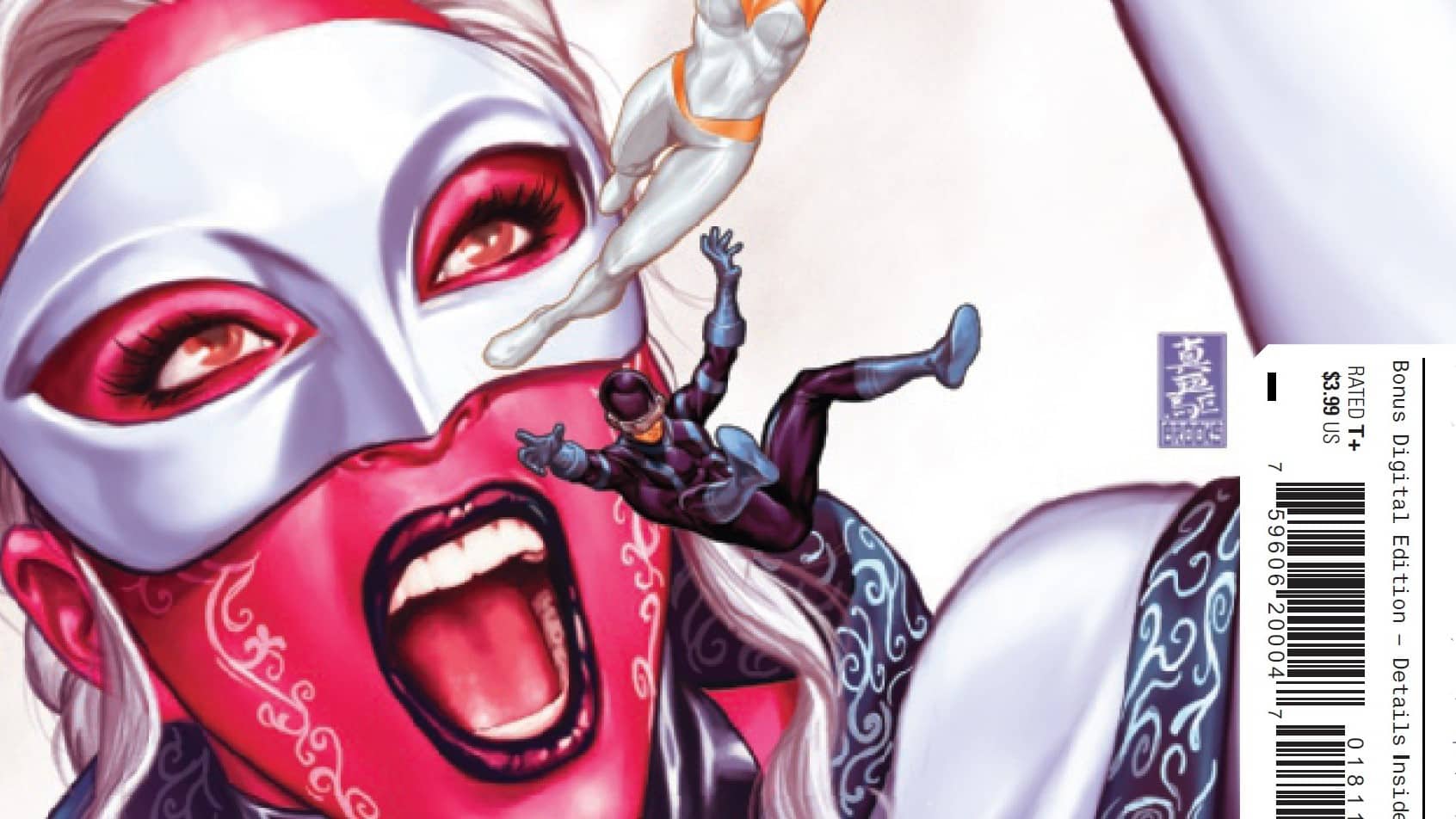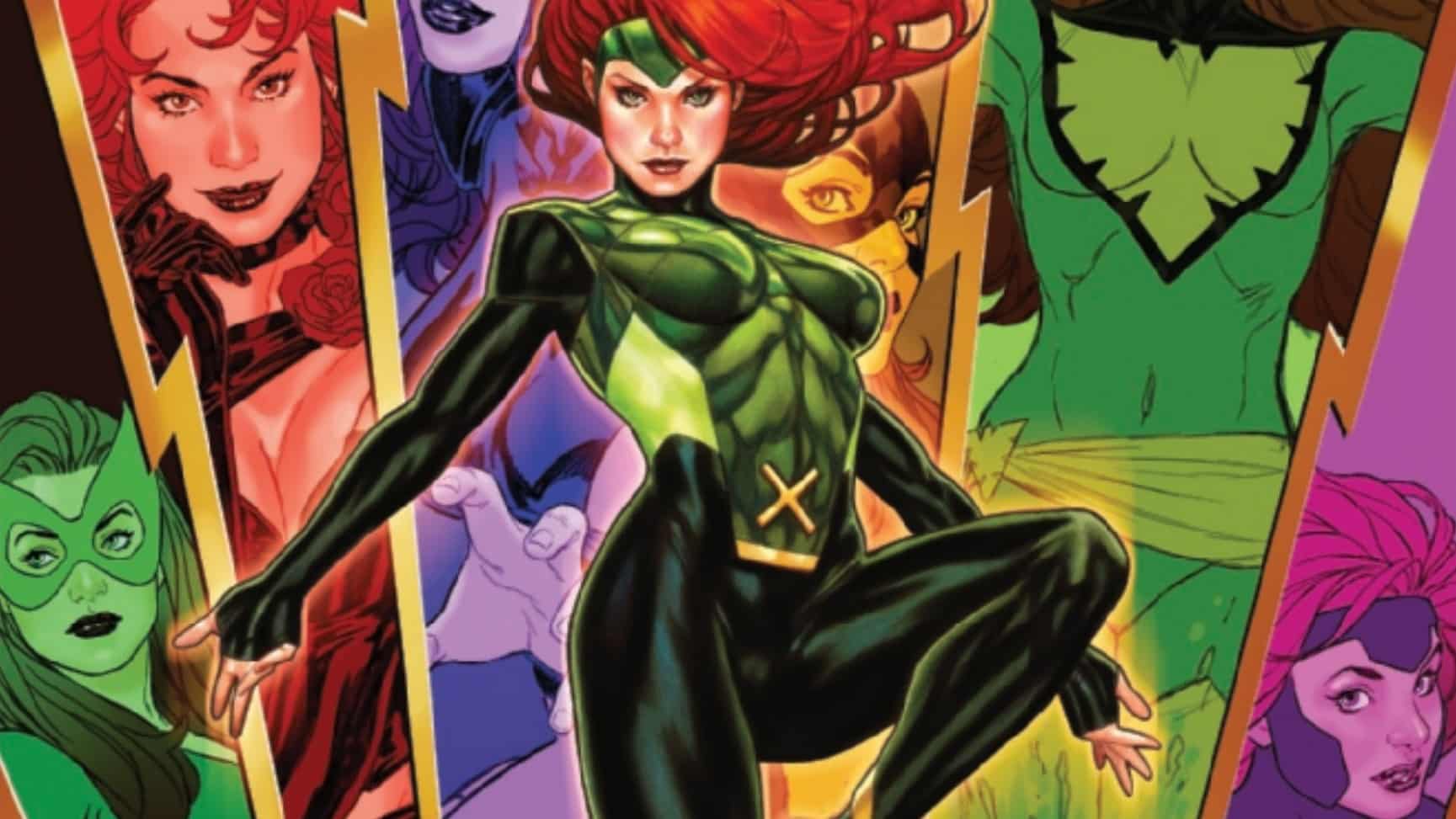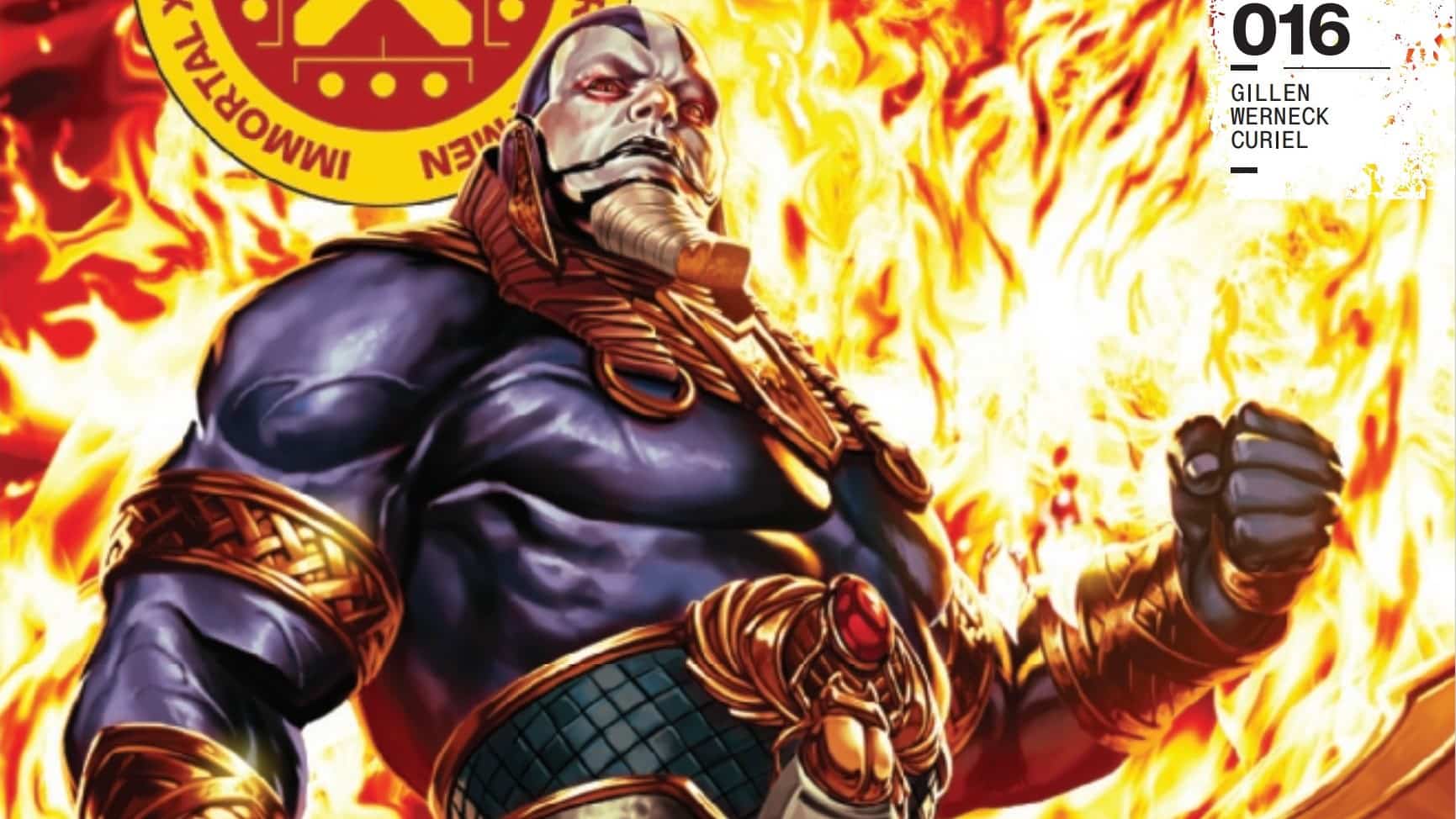Piotr Rasputin may seem like a simple man, but with the Sinister Four having lost voting privileges, he’s the most powerful one-man voting bloc on the Krakoan council. Too bad he’s an unwilling Russian operative. Immortal X-Men #11 is written by Kieron Gillen, drawn by Lucas Werneck, colored by David Curiel and lettered by Clayton Cowles.
Mark Turetsky: Here it is, Austin, the issue we’ve feared and awaited, the issue that centers Colossus, the goodhearted mutant that’s nobody’s pawn. Only it turns out, everyone thinks he’s their pawn. But his actual controller is off panel, seen only through his reality-warping caption writing. Welcome to the new metanarrative reality of Piotr Rasputin.
Austin Gorton: The hilarious/sad thing is that this issue doesn’t pull off a big, empowering reveal about how Colossus is nobody’s pawn, but instead, just underscores how of course he’s no better than a pawn. It’s just a question of whose pawn he is. It’s depressing in, appropriately enough, a very Russian novel kind of way.
Remote Control

Mark: Of course, the big twist of this issue happened back in 2021, in X-Force #24, where Mikhail Rasputin compels Chronicler to write the story of Piotr’s life, effectively making him a character in Chronicler’s novel. The lettering style for Chronicler’s captions in this issue comes straight from that X-Force story. It’s a really interesting metanarrative theme to explore: What if a character’s life story became the product of a writer within the story? Of course, we should also be thinking about how the Chronicler himself is being manipulated by a writer above him: Kieron Gillen.
Austin: And Gillen, of course, doesn’t enjoy complete creative freedom either, bound by editorial and market demands, the same kind of “true to character/narrative” continuity demands that inhibit Chronicler, etc. [College stoner voice]: Are any of us truly free, man?
Anyway, the “reveal” of the Chronicler’s control of Colossus cuts two ways (I put that in quotes because it was already established, and because it’s made clear what is going on by the first page of the issue). On the one hand, it’s an effective surprise, as Chronicler’s control of Colossus hadn’t been flagged in any of the series’ prior issues (or really anywhere else of late). On the other hand, you and I, two people relatively well-aware of the larger goings-on in the wider X-universe, had to go and look up where the Chronicler’s control of Colossus was first established and what the whole deal was.
Obviously, we love this kind of stuff, but a little more of a head nod at the previous story might have been nice. Maybe this is just me, an Old Man yelling at the cloud that is the absence of footnotes in modern comics.
Mark: It’s true: We’ve been bad reviewers since we didn’t mention it before, despite my having read that issue when it came out. I’ve got a lot on my plate, Austin.
What I truly appreciate about the portrayal of Chronicler’s powers is how it seems to be a two-way street: Piotr still has some freedom within his own mind. He has the ability to think for himself, even if he can’t act on his impulses. And that in turn forces the Chronicler to write down what Piotr is thinking. So the Chronicler can only control what Colossus does, but Piotr’s thoughts control Chronicler’s pen to a certain degree.
And while we’re on the subject of members of the council being pawns for forces beyond their control, we’ve also got the question of Shaw, who’s in league with Mother Righteous. He believes himself to be her partner, and possibly thinks that he’s got the upper hand, but it remains to be seen if that’s true or not. And we get to see Righteous control the outcome of events through a much more obvious magical manipulation. She wants Selene on the council (and she’s likely the one who resurrected Selene in the first place), and the Russians are only too happy to go along with that plan, even though they don’t know who is putting it into effect or why, but simply because it moves toward destabilizing Krakoa.
Austin: Of course, the flip side of the limited freedom Chronicler’s power affords Colossus is that because Colossus has some freedom within his own mind, he’s aware of how he’s being controlled. He’s watching himself say and do all these terrible things he has no control over knowing he doesn’t want to say or do them but has no choice. It’s terribly, terribly bleak, and as entertaining as this issue is, it’s also a real gut-punch. I’ve never been a huge Colossus stan, but man, I really feel for the guy in this issue.
That freedom — and the high cost of it — is also what makes possible Colossus’ minor victory in this issue, and makes it feel like a triumph despite effectively only delaying the inevitable. He’s able to use Chronicler’s love of drama to delay the proceedings long enough for Storm to return and reclaim her vote, stripping Colossus of 1/3 of his voting power. It is a small victory at best: Colossus remains under Chronicler’s control, Shaw and Mother Righteous continue to scheme, etc. But it’s the best he can do given the circumstances, and Gillen does the work necessary to make it feel like he just hit a walk-off grand slam to win the game.
You Give Love a Bad Name

Mark: The development that shores up Piotr/Kurt, Selene and Shaw’s voting bloc is the other big gut punch of the issue, Mystique’s murder of Destiny.
Gillen knows how to write these two to the greatest effect here. Last month, Mother Righteous gave Mystique the incriminating recording of Destiny from the Sinister Timeline, but here they have a heart to heart. They work things out as a healthy couple does. They reconcile. I was just thinking, “Man, this has been the one real throughline of this series,” and then of course, after one of Righteous’ tactics has failed, she acts a bit more directly, manipulating Mystique’s emotions into killing Destiny. Death is only a minor inconvenience on Krakoa, and so Destiny is immediately resurrected, but since the council can’t be sure that she isn’t a carrier of hidden Sinister DNA, she loses her voting power.
Austin: In general, one of the things I’ve enjoyed in the Krakoa Era (and that Gillen is particularly adept at) is the creation of stakes for character death beyond “they’re dead.” We already know character death in comics is a revolving door; Krakoa just literalizes that, which forces writers to come up with other ways to make “death” matter. The combo of Destiny getting shunted off into the impotent Sinister Four group, along with the emotional ramifications of having experienced Mystique kill her, does that here.
Mark: The thing that rankles me most is the rapidity with which Destiny’s murder is swept under the rug: Why not investigate Mystique? Why not determine what made her act the way she did? Why hasn’t she been exiled or at the very least removed from the council? Is it because the new regime doesn’t want any of that investigated, lest their secrets come out? Is it because they simply don’t care?
Austin: Along with the lack of footnotes (an admittedly minor thing), this is the other thing which bugged me the most in this issue. I’m hoping Gillen will circle back to this (and either reveal an investigation or explicitly state a reason why one was allowed to be swept under the rug), but I suspect it’ll likely get swept aside by larger narrative demands. But it has to be viewed with suspicion; if, say, Shaw suddenly killed someone out of nowhere, I can see shrugging it off as villains being villains. But this is Mystique and Destiny; it HAS to have raised some eyebrows.
The scene between Mystique and Destiny just before Mystique is compelled to kill her (another example in this issue of someone acting against their own will, I’ll point out before someone @s us) is one of those things you don’t see in serial fiction too often: characters in a relationship having a fight that seems like a big deal, hashing it out and then ending up in a stronger place. It would be very easy to imagine Mystique’s anger at Destiny being willing to let so many people suffer to keep Mystique alive driving a larger, multi-issue rift between them in an effort to amp up the tension in the series. Instead, it gets resolved in a few pages. It’s a refreshing break from the norm.
Mark: It’s funny, early on, Piotr says “the good are gone, and only the sinners remain,” (echoing Shakespeare’s “Hell is empty and all the devils are here”), and it takes on a new meaning here: Kate, Storm and Mystique (and Kurt, if he ever decides to return) are the only bulwarks left against Shaw, Selene and Colossus, and it’s not enough.
The Bed That Xavier Made

Austin: The Sinister Four do their best to interfere with the proceedings, while maintaining their pledge not to interfere in official matters (to varying degrees of success). I love the different ways each of them gets involved, and what it says about their character. Hope says “eff it” and just borrows some telepathy to find out what’s going on, gets wind of Shaw’s coup and tries to intervene, bringing her into contact with Rasputin. Emma, who lives in the space around loopholes, reads Hope’s mind to find out what’s going on, honoring the letter but not the spirit of the law. Xavier intervenes against Emma when she tries to go further. And Exodus, who earlier espouses his proclivity for patience, waits until the right idea hits him, then teleports Storm into the council chamber to stop the coup, an approach that falls somewhere between Hope’s and Emma’s.
Mark: Exodus is always one for calling on a savior from above, it seems. The final vote we get in the issue is for Piotr’s proposal to tell the rest of the world about the Sinister timeline. It’s the other side of the quid pro quo: He goes along with the Selene appointment, they go along with the announcement. The thing is, it’s a terrible idea, everyone knows it, and they think little enough of Piotr’s sense of right and wrong that they have no problem accepting that he might think it’s the right thing to do. Some friends, right? The revelation of the Sinister timeline, plus the worldwide vision of the X-Men nearly destroying Iceland during Judgment Day, means that Krakoa’s international reputation is headed straight down the drain.
And here’s the thing: While the Krakoan council is now hopelessly corrupt, possibly beyond any redemption, it’s a direct result of the form of government Xavier put into place: There’s no accountability for the Quiet Council beyond the Quiet Council. There’s no power to remove members of the council beyond … the council! There is absolutely no civilian oversight of the council. It almost makes you long for the Arakki way of doing things. At least then there would be a way to remove corrupt council members.
Austin: It really underscores the need for checks and balances, and the fact that, for all that it’s a 12-member council, it’s still a unilateral form of government lacking any check outside of Doug and Krakoa. Also, this whole business of laying proxy votes on top of proxy votes further dilutes the power of the governing body. Before Storm comes back via Exodus, the proxy pileup caused by her, Nightcrawler and Colossus makes it so it’s effectively only two people calling the shots.
Mark: Shaw & co. seem to have learned a lesson from Mitch McConnell: Better to leave a seat empty and have fewer voting members until you can get your own patsy into that seat. And speaking of Doug and Krakoa, have you seen who’s on the cover of issue #13? Now that we’ve had 12 issues and gone through each member of the council’s point of view, it’s time to check in with the body overseeing them, seldom seen but always present.
X-Traneous Thoughts
- The Chronicler, the Russian writer mutant controlling Colossus, first appeared in X-Force #23, and the extent of his control over Colossus was revealed in issue #24.
- Selene was killed in Immortal X-Men #2.
- Honestly, it feels like present day Xavier would be more in line with Emma’s “read Hope’s mind” approach and less likely to directly act to stop Emma than what we see here; maybe that’s an indication of just how much “Sins of Sinister” rattled him.
- I continue to enjoy the way Colossus’ beard is drawn as a thick black line when he’s metalled up, just like his hair.
- Rasputin reads Shaw’s mind to confirm he’s not working with Orchis, a charge leveled by Destiny (who knows that he is). Presumably, Mother Righteous is manipulating the scan in some way.
- The Idiot, the Dostoyevsky novel from which this issue takes its title, tells the story of Prince Mishkin, who, like Piotr, is kindhearted and good, which leads the cynics around him to assume he’s an idiot. Late in the issue, Piotr thinks in terms of wanting to tell Storm that he’s not Prince Mishkin, that he’s actually under the control of a reality-warper.
- Also, all literary allusions aside, hat tip to Gillen for titling the Colossus issue “The Idiot.”






